Affiliate links on Android Authority may earn us a commission. Learn more.
iOS 17 features, release date, and compatibility
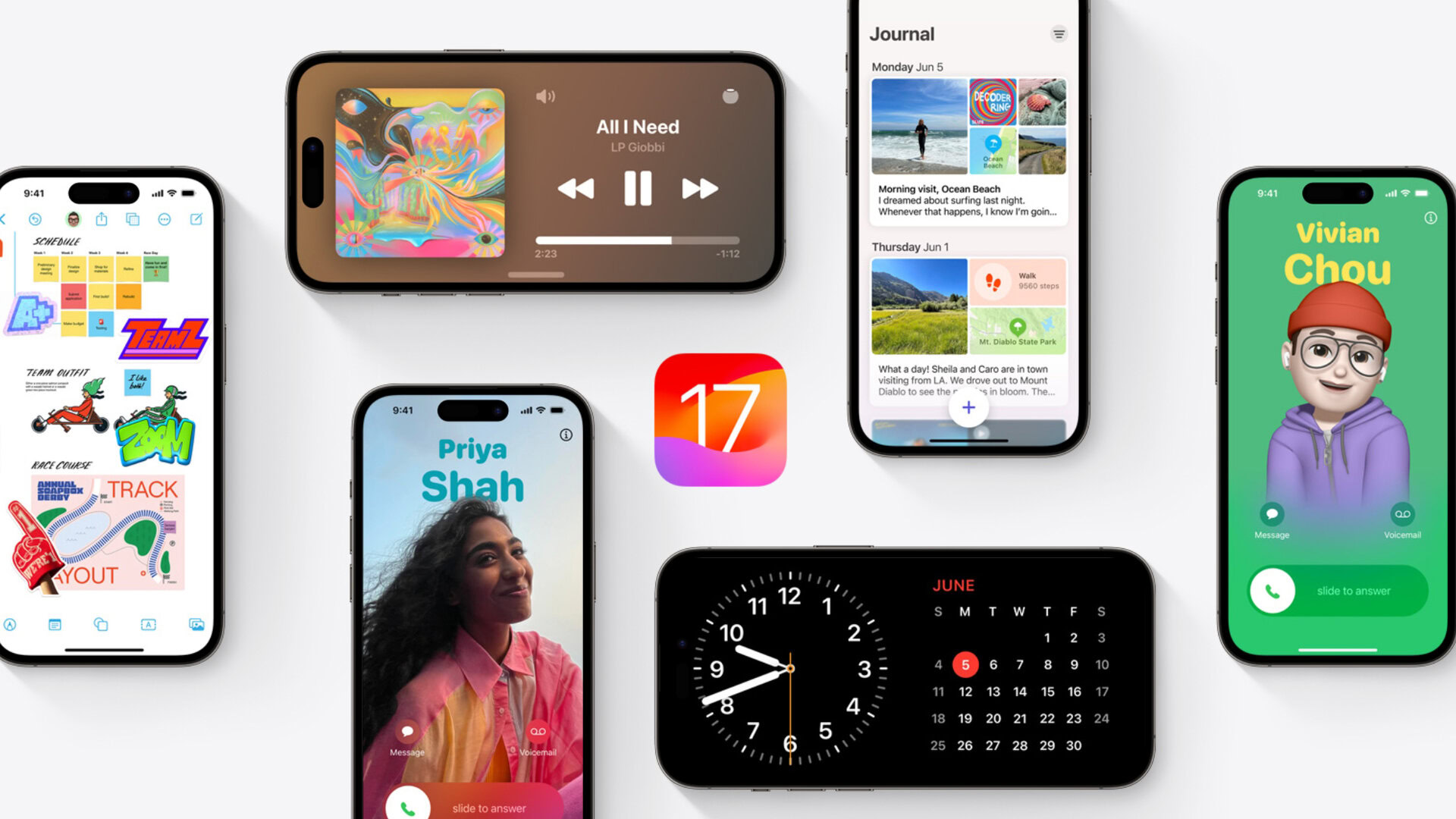
During its WWDC 2023 keynote this June, Apple announced iOS 17, the latest update to the operating system that powers the iPhone. iOS is known for its stability and attention to detail. The latest update brings a surprising number of changes, and most iPhone owners will be able to use them right now.
iOS 17: At a glance
- When is it coming out? Apple released the iOS 17 update on Monday, September 18.
- What's new? There are tons of new features in iOS 17, including:
- New contact posters that can be customized and displayed when you call another Apple user.
- Easier contact sharing with NameDrop.
- Safari improvements including new web apps.
- Tons more from real-time voice mail transcriptions to mental health features and beyond.
iOS 17 release date and name
- iOS 16: September 12, 2022
- iOS 15: September 20, 2021
- iOS 14: September 16, 2020
- iOS 13: September 19, 2019
iOS 17 is available as a free update on eligible devices right now. The new OS will come preinstalled on all iPhone 15 models. To download the latest version of iOS you need to go to Settings > General > Software Update. If there’s an update available you’ll simply follow the prompts to install it. Note that you can also turn on automatic updates by going to Settings > General > Automatic Updates.
iOS 17.0.02 is now out
Recently iPhone 15 users got the iOS 17.0.01 update which addressed an issue that prevented data transfers for some iPhone 15 owners. Now that same update is coming to the rest of the iPhone family as build 21A351. Despite a different version number, there are no other changes here. It’s also worth noting the update isn’t available for the iPhone 15, as it would be redundant.
iOS 17.1 beta is out for developers, bringing a few new features

Apple has officially released the iOS 17.1 beta for developers. There are actually a few new features, in addition to bug fixes and other small improvements:
- Apple Music Favorites: You can now favorite albums, songs, playlists and artists in the iOS 17.1 Music app.
- Namedrop comes to Apple Watch: You’ll need WatchOS 10.1 and iOS 7.1 for this new feature. Now you can quickly exchange contact info using your watch.
- Support for UK user bank balances: The Wallet app can now allow UK users to see their balances, payments, purchases, and deposits.
- Airdrop gets a new Out of Range toggle: As you might remember, iOS 17 added the ability to continue Airdrops when you move out of range. Now a new toggle exists that lets you turn this on or off.
- There’s now a “Flashlight On” indicator in the Dynamic Island: Simply put, you now have an indicator in the Dynamic Island on the iPhone 14 family, just like the iPhone 15 and 15 Pro.
That’s just a few of the features, though a couple of other minor improvements exist beyond this, including the ability to you se the Nintendo Switch N64 controller on your iPhone.
iOS 17 features
There are quite a few changes that come with iOS 17. Let’s break down some of the biggest ones below.
Contact Posters come to the Phone app
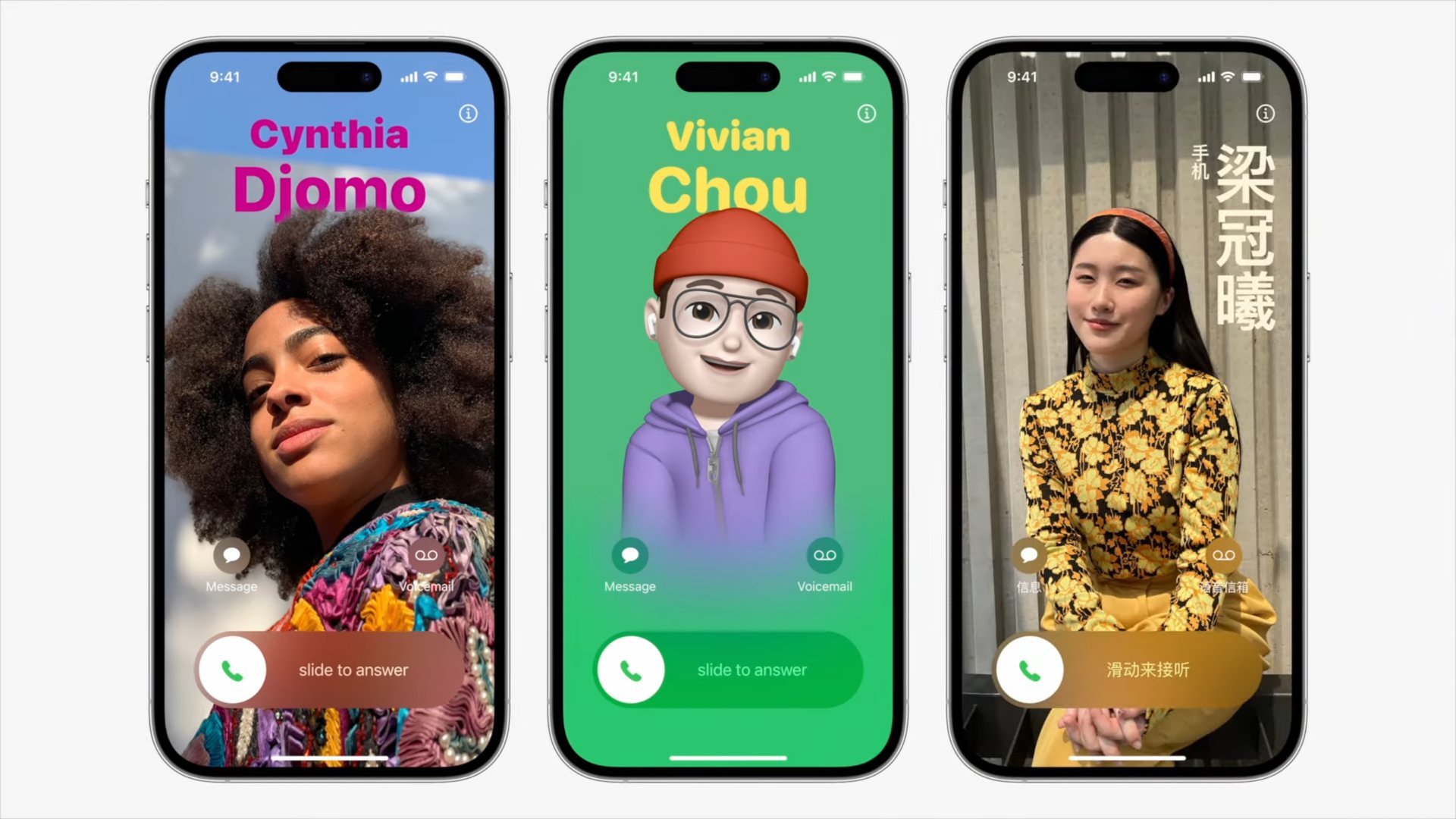
One of the top user-facing changes in iOS 17 is Contact Posters. Contact Posters are personalized photos that introduce you whenever you call a fellow Apple user on their iPhone or iPad. So, instead of displaying the standard incoming call screen on another person’s phone, iOS 17 will display a rich photo you can personalize.
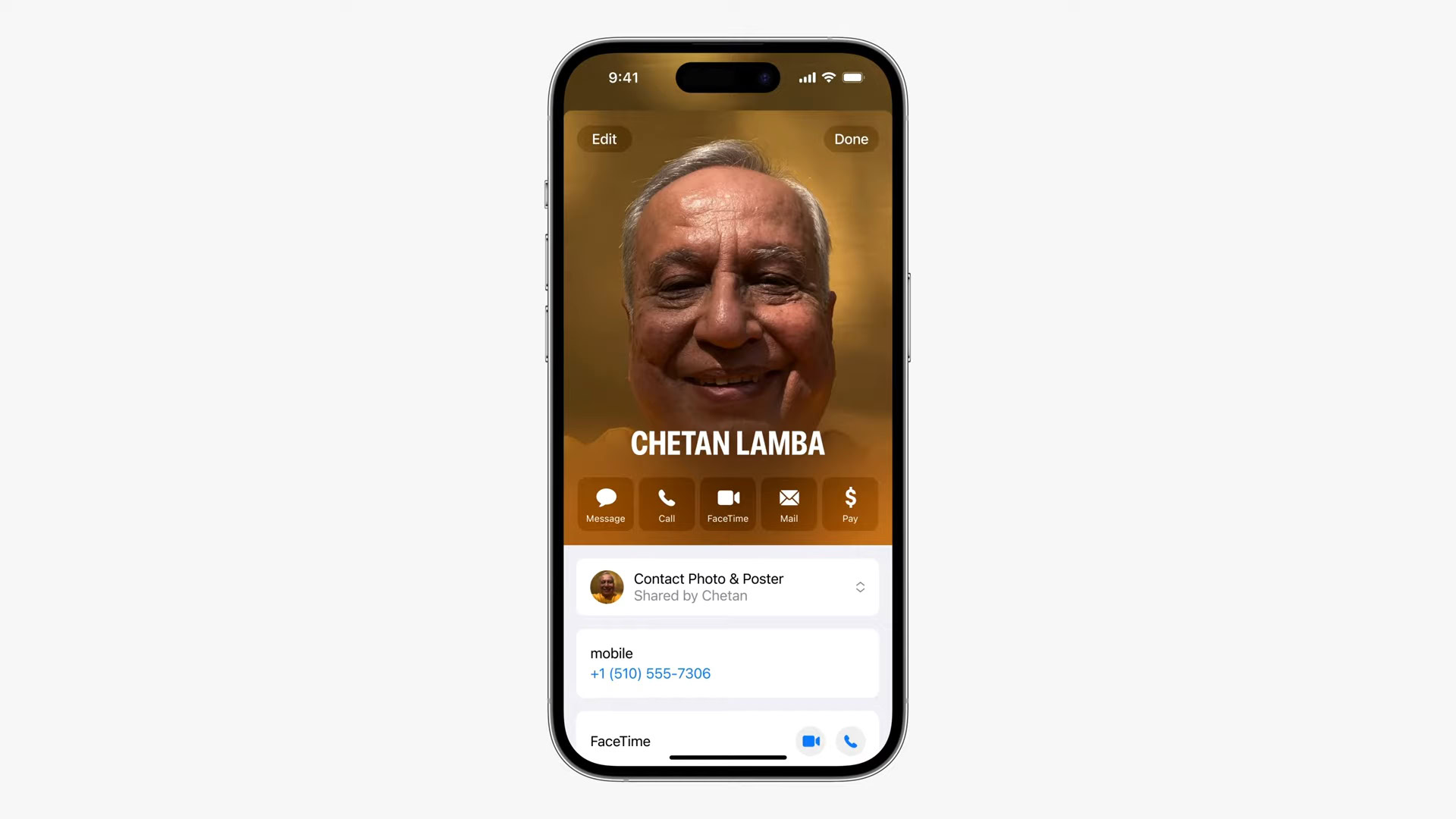
Strictly speaking, users can choose between their photos or Memoji, and customize typography and font colors. Contact Posters will also be available for third-party calling apps and how your contact card gets shared.
NameDrop lets you AirDrop your contact card

Now that you’ve created a good-looking Contact Poster, it’s time to share it, and iOS 17 is making it easy with the new NameDrop feature.
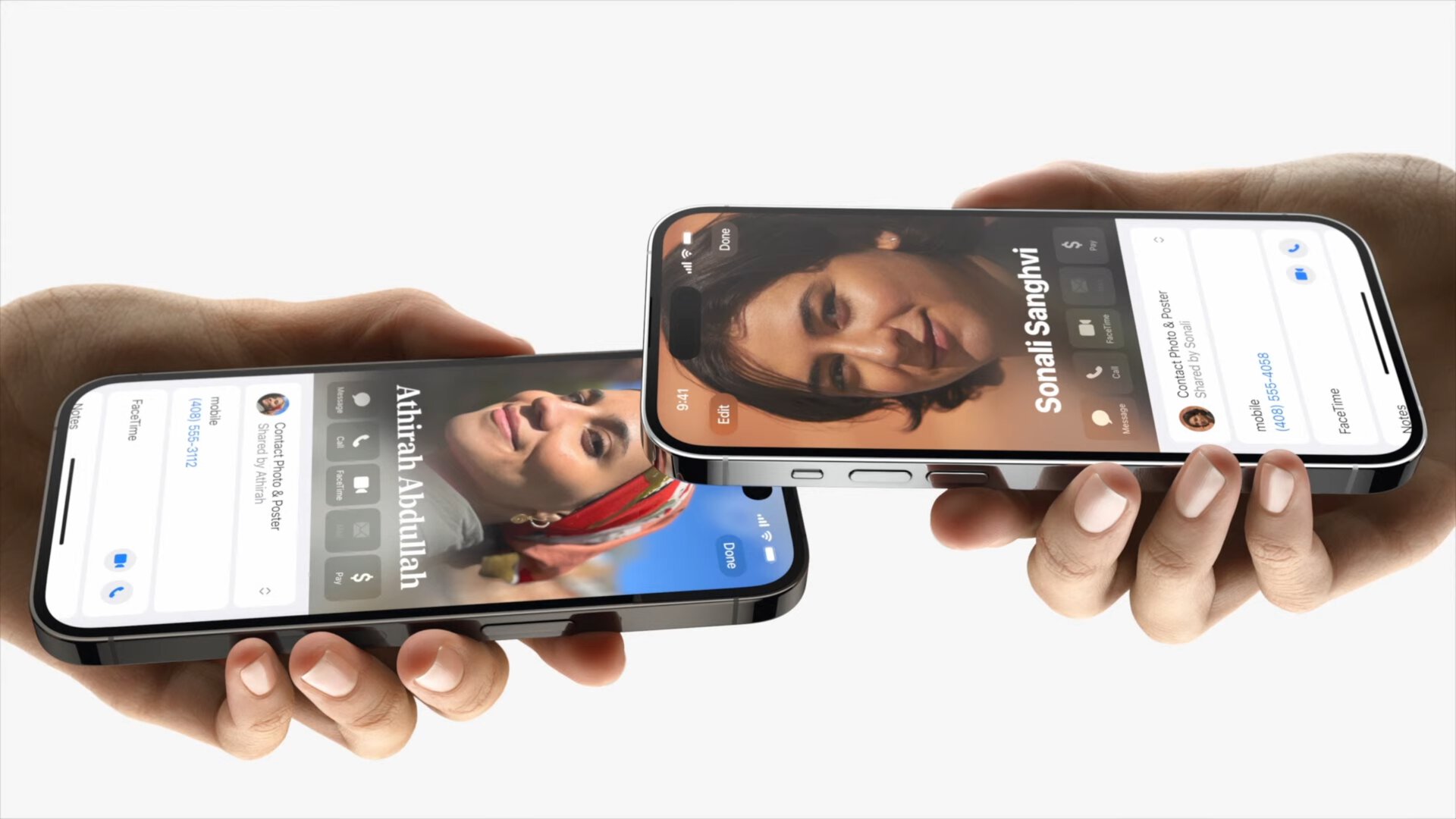
NameDrop lets you share contact information by bringing your iPhone close to another iPhone or Apple Watch. Gone are the days of manually spelling your phone number out. Now bump your iPhone into another to send over your details!
AirDrop can now send files over the internet if you wander away
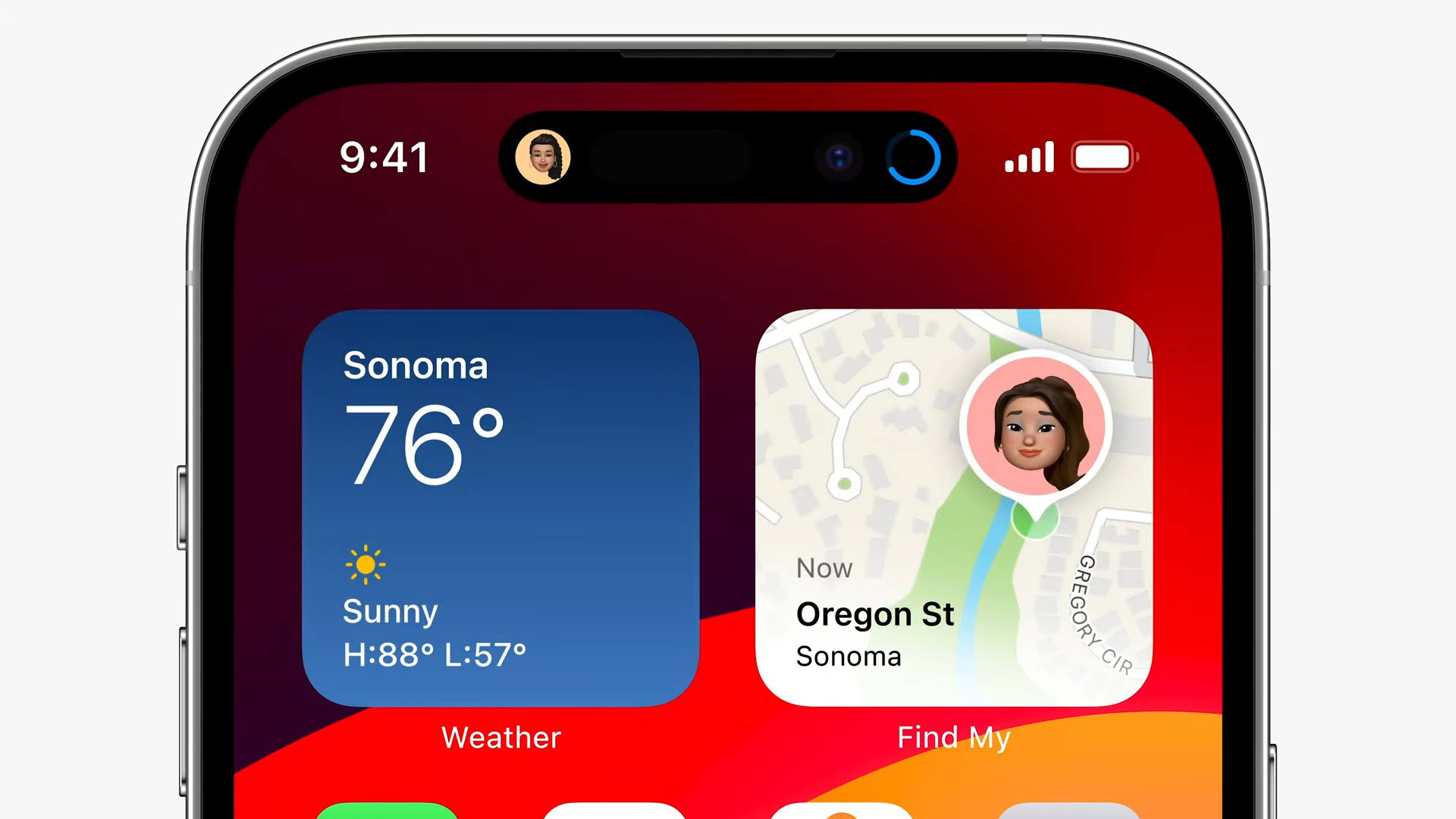
AirDrop enables high-speed file transfers over short ranges, but with iOS 16 or earlier, it sometimes locked you in place — leaving you to catch a train or chase after your dog would kill a transfer completely. With iOS 17, those transfers can continue over iCloud, as long as both people are signed into their iCloud accounts.
Real-time transcriptions with Live Voicemail
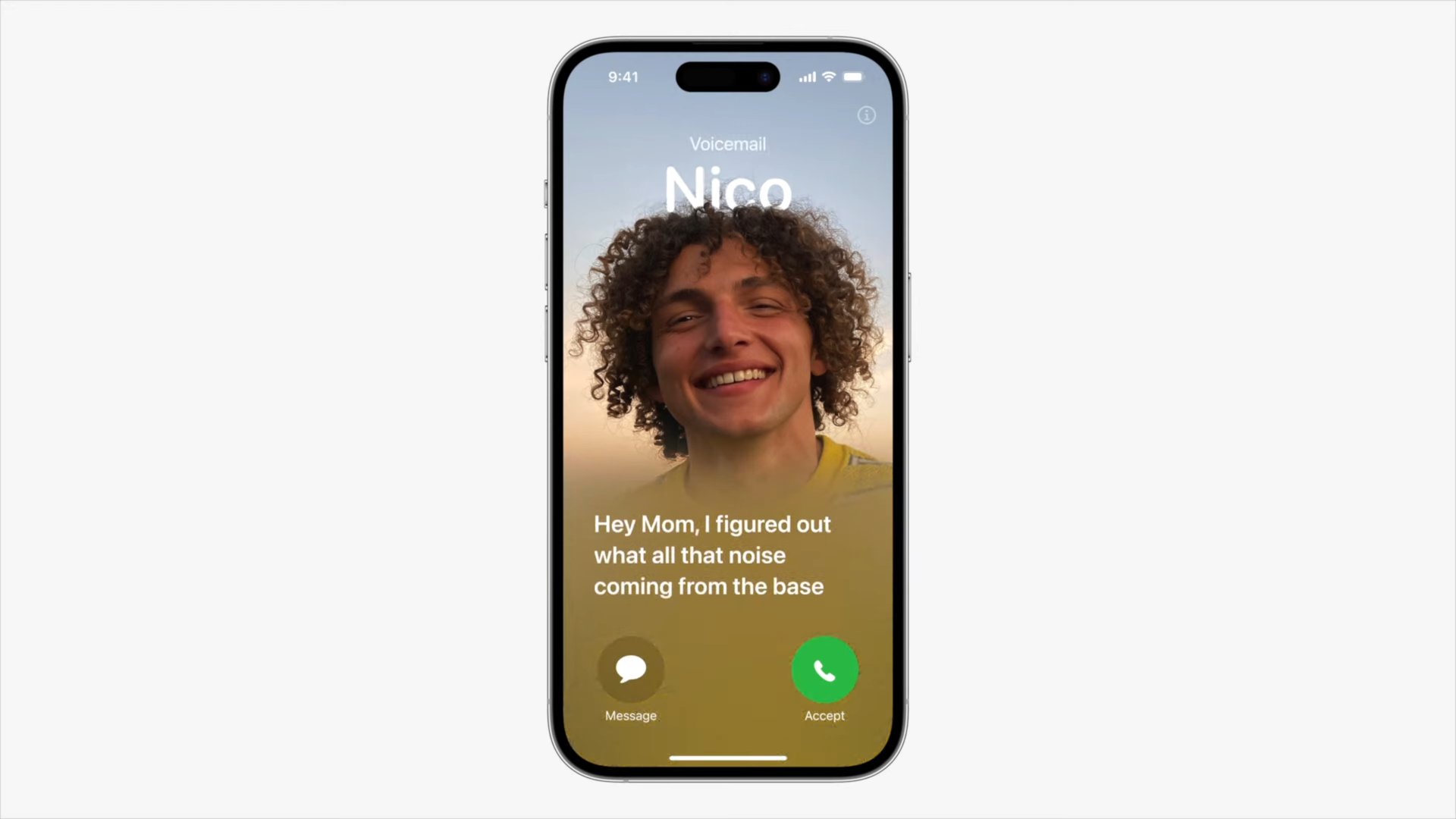
While the tech behind it is genuinely advanced, relying on an iPhone’s Neural Engine, Live Voicemail is in a way a throwback to the day of answering machines. You’ll be able to see the content of a message as it’s recorded, and decide whether or not you want to pick up or send a text message.
Calls your carrier identifies as spam will be instantly declined. Even when spam does slip through, though, there should be less of a rush to check your voicemail.
FaceTime gets audio and video messages, reactions, and more

With iOS 17, if someone can’t pick up your FaceTime video call, you can finally leave them an audio or video message, at long last.
You can also send reactions within FaceTime calls. These rely on simple gestures that you act out in front of your phone’s camer. Making a heart gesture, for example, will shower the screen with heart icons. Third-party video calling apps can also take advantage of reactions.
Live Stickers lets you lift subjects from photos and create reusable stickers
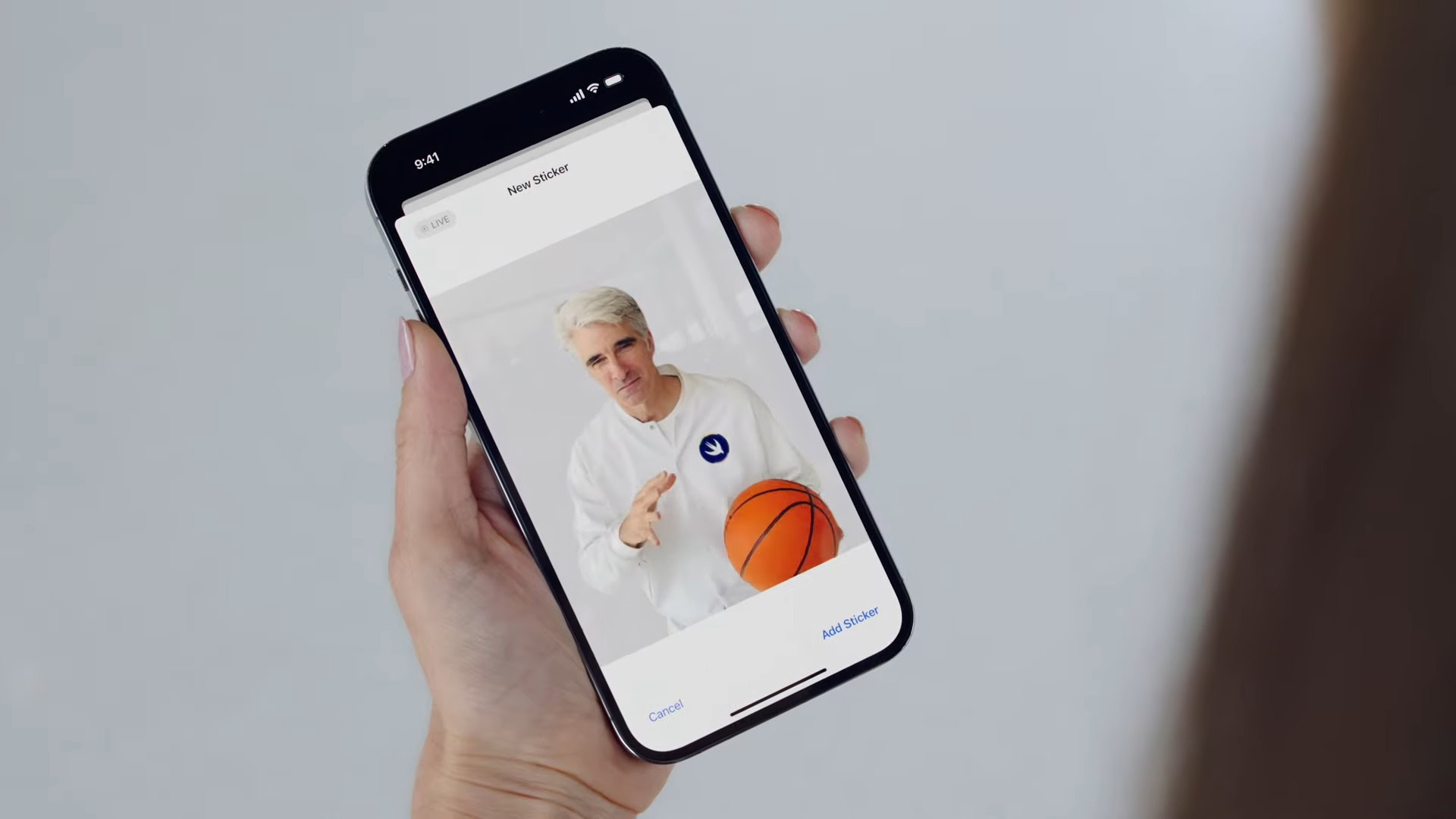
Apple’s nifty iOS 16 feature that lets you lift subjects from photos has been a big hit. iOS 17 is following up on this with Live Stickers in the Messages app.
The concept is the same: you lift subjects from photos (and now Live Photos), but now you can create reusable stickers. You can also animate them with effects like outlines and glitter. Your sticker collection can be accessed system-wide wherever emoji are available.
Check-In lets you automatically notify people when you reach somewhere
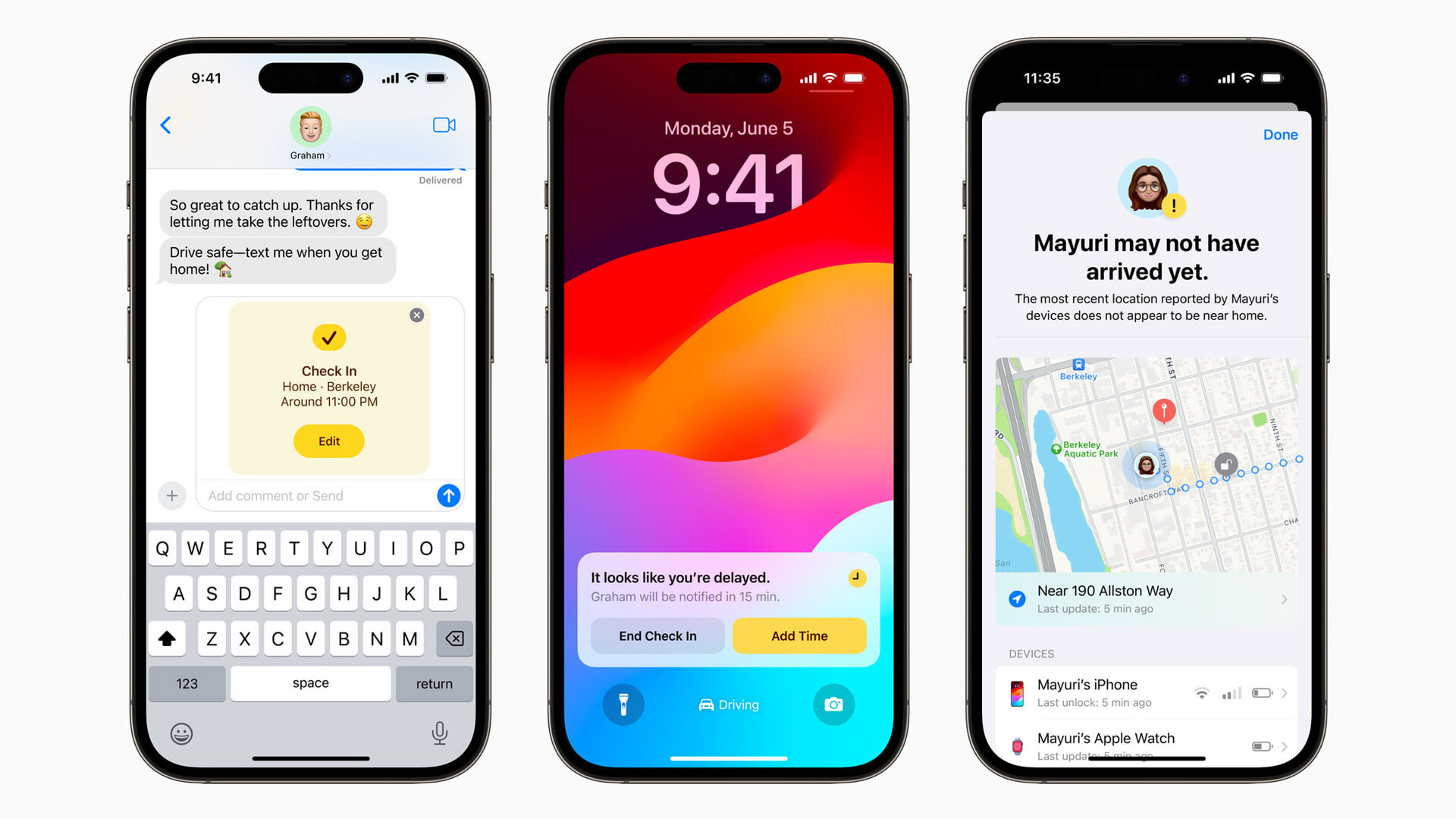
Speaking of Messages, the app is getting a nifty new Check In feature. This should be immensely helpful when you want to notify friends or family that you’ve safely reached your destination.
When you initiate Check In, the receiver will automatically be notified when you arrive at your destination. If you’re delayed beyond a set threshold, critical information from your device such as your recent location, battery level, and cell service status will be shared.
Messages app gets cleaner and smarter
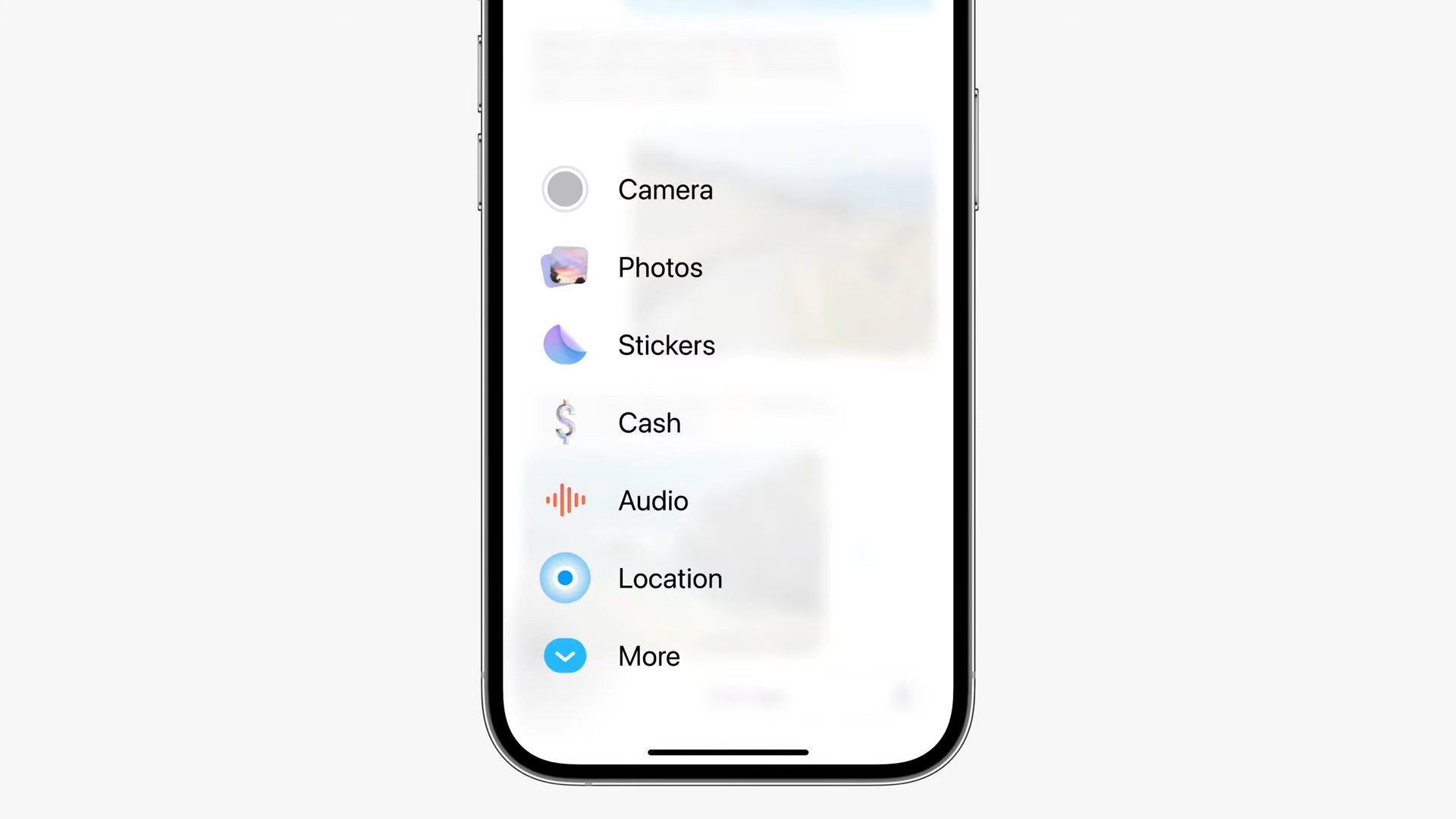
Other Messages refinements include an expandable menu that displays attachment options like photos, location, and more.
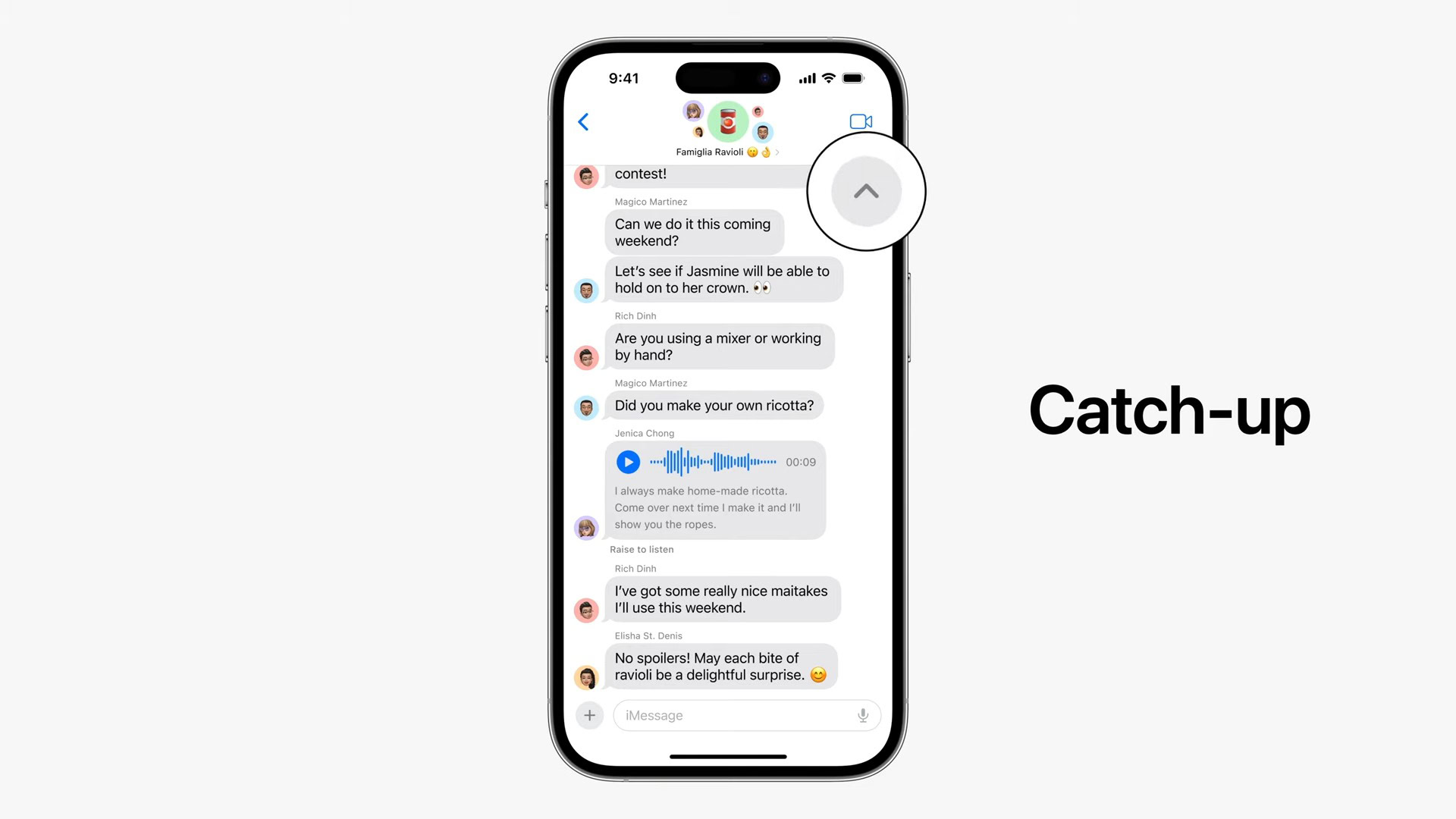
A new “catch-up” arrow indicates where you last left a conversation.

Inline replies are now easier, as you can reply by lightly swiping right on a text bubble.
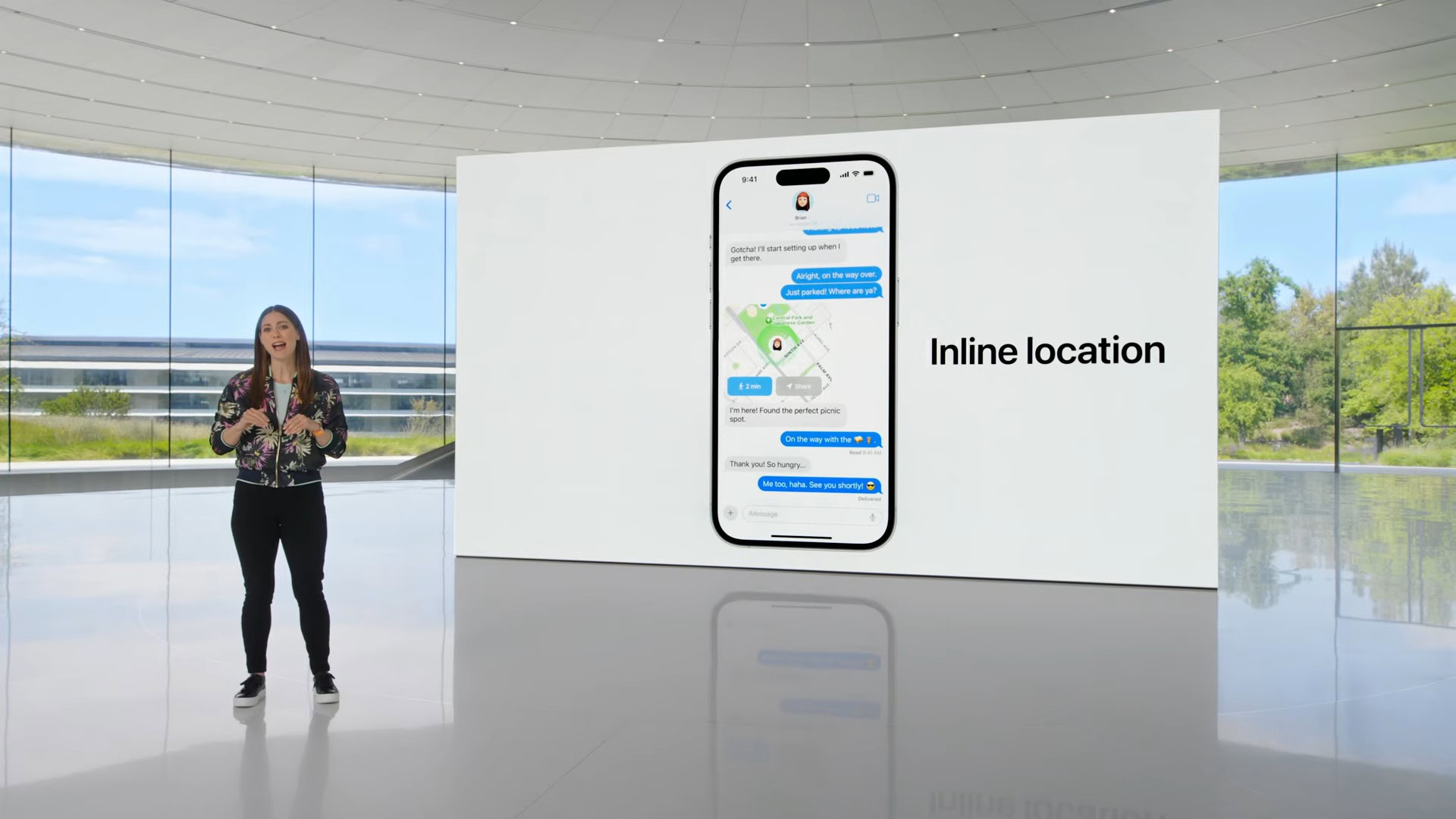
When someone shares their location in the Messages app, it will now update in real-time in the conversation, instead of sharing a useless static thumbnail.
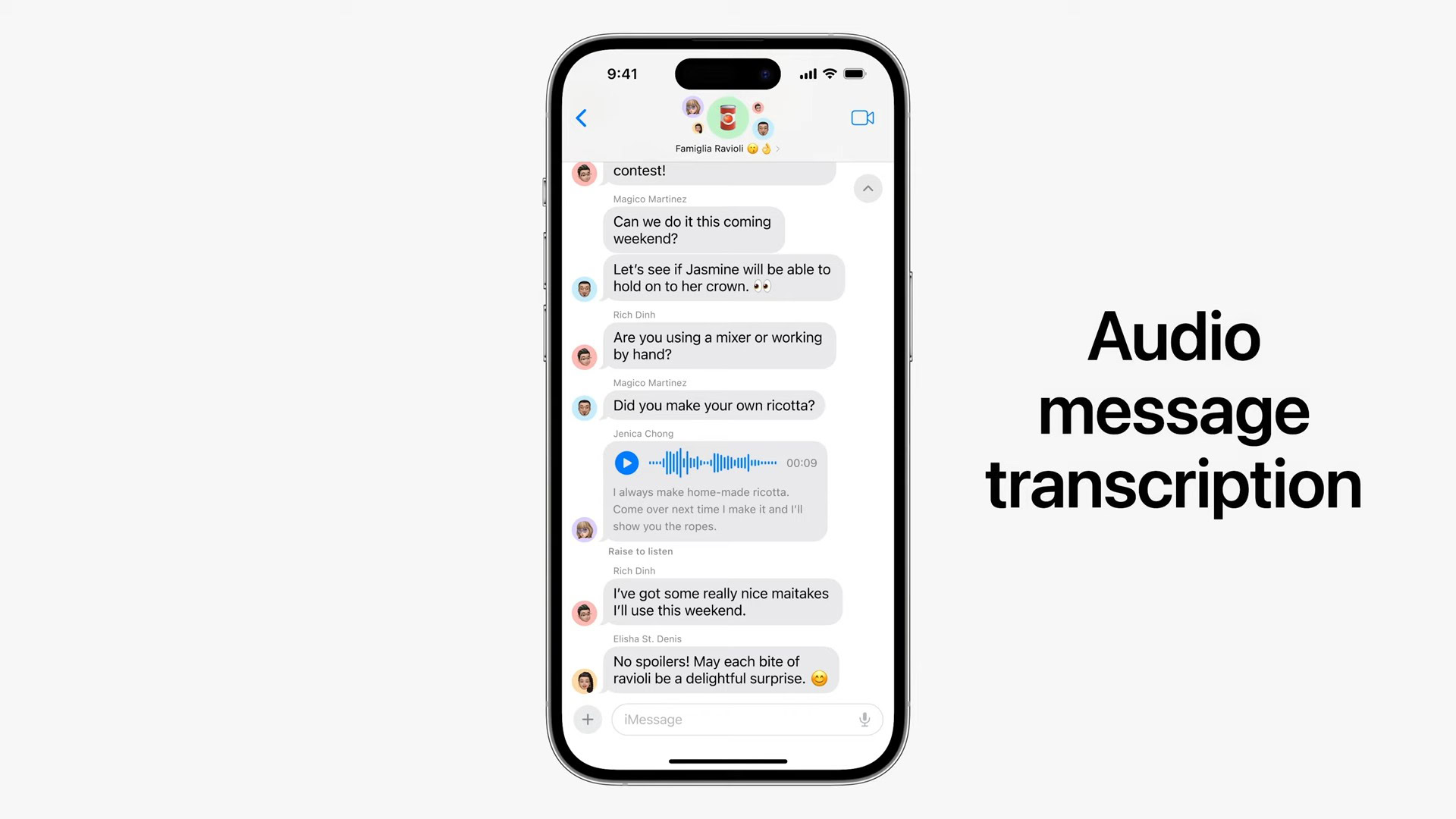
When sending an audio message, the message is transcribed automatically. Others can choose to either listen to the message or read the transcript.
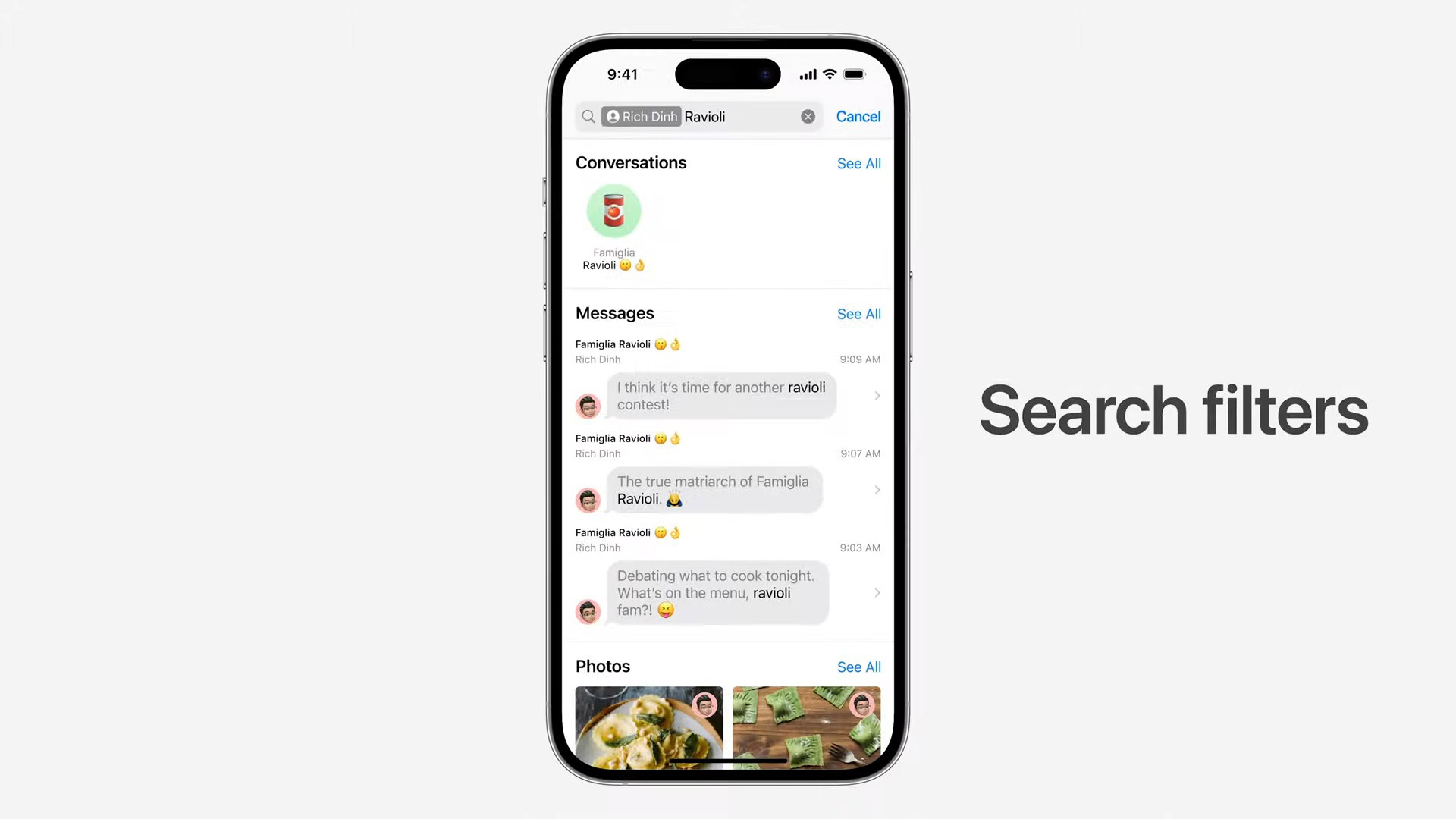
Searching within Messages is now smarter with filters, making it easier to narrow results.
StandBy gives your iPhone some purpose when charging
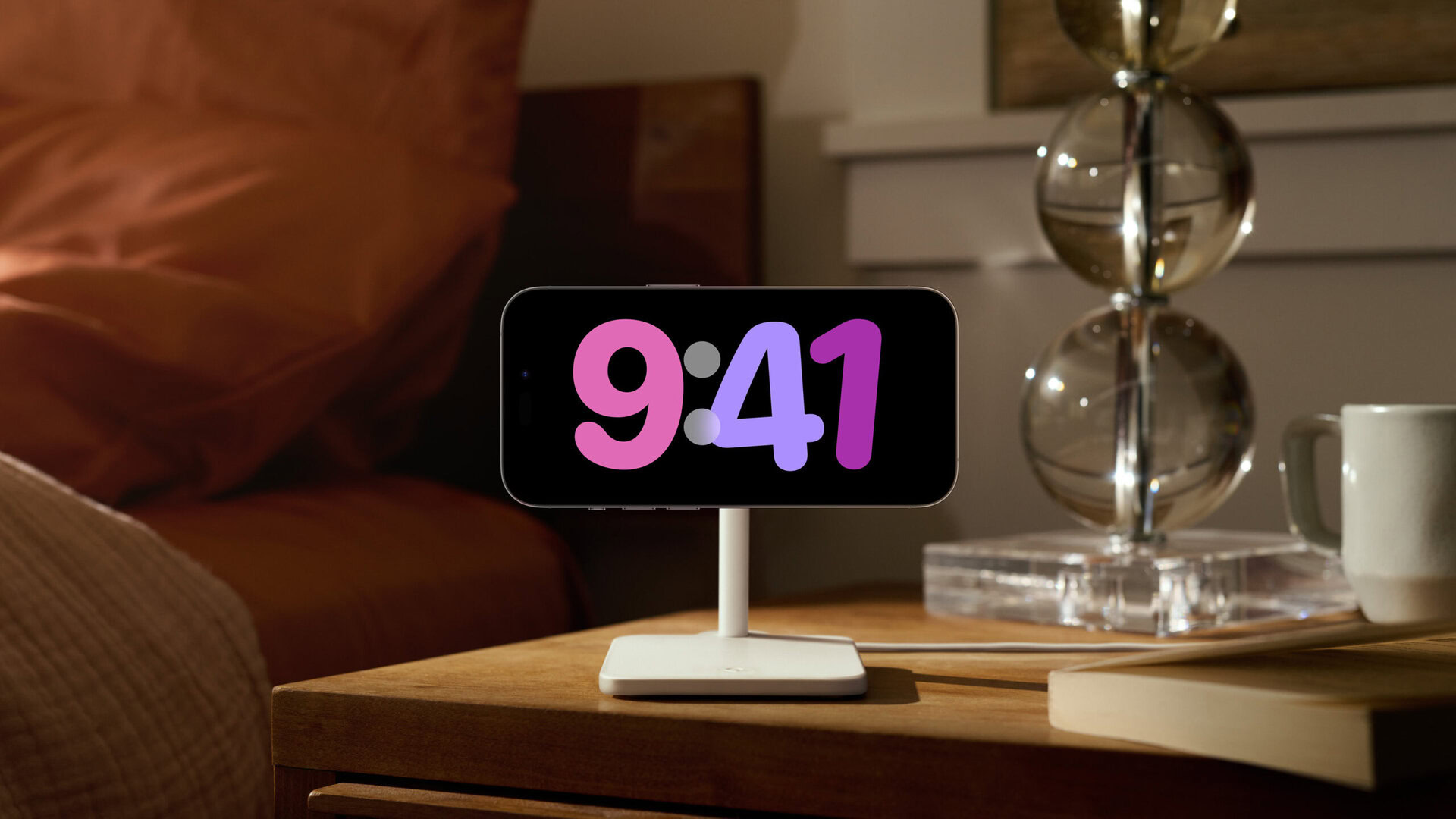
With StandBy, placing your iPhone in a landscape orientation when charging with Qi or MagSafe will display glanceable information. This can range from the time (with many clock options) to your favorite photos or widgets, including the Smart Stack widget.
StandBy also supports Live Activities, Siri, incoming calls, and prominent notifications, making your iPhone much more usable from a distance. Think of it as turning your iPhone into a Nest Hub.
Further, when you charge using a MagSafe accessory, StandBy will remember your preferred view.
On iPhones with Always On Displays like the iPhone 14 Pro and 14 Pro Max, StandBy is always visible when charging your phone on its side. On other models, you can bring up StandBy by tapping on the screen, where it will sit for a few seconds before the screen switches off again.
Wake up Siri with just “Siri”

One significant change is how Siri is activated. Instead of needing to say “Hey Siri,” people can now say simply say “Siri” to wake the virtual assistant. It can also accept multiple commands in succession without needing repeat the wake word, putting it more in line with Google Assistant.
AI comes to Autocorrect and Dictation
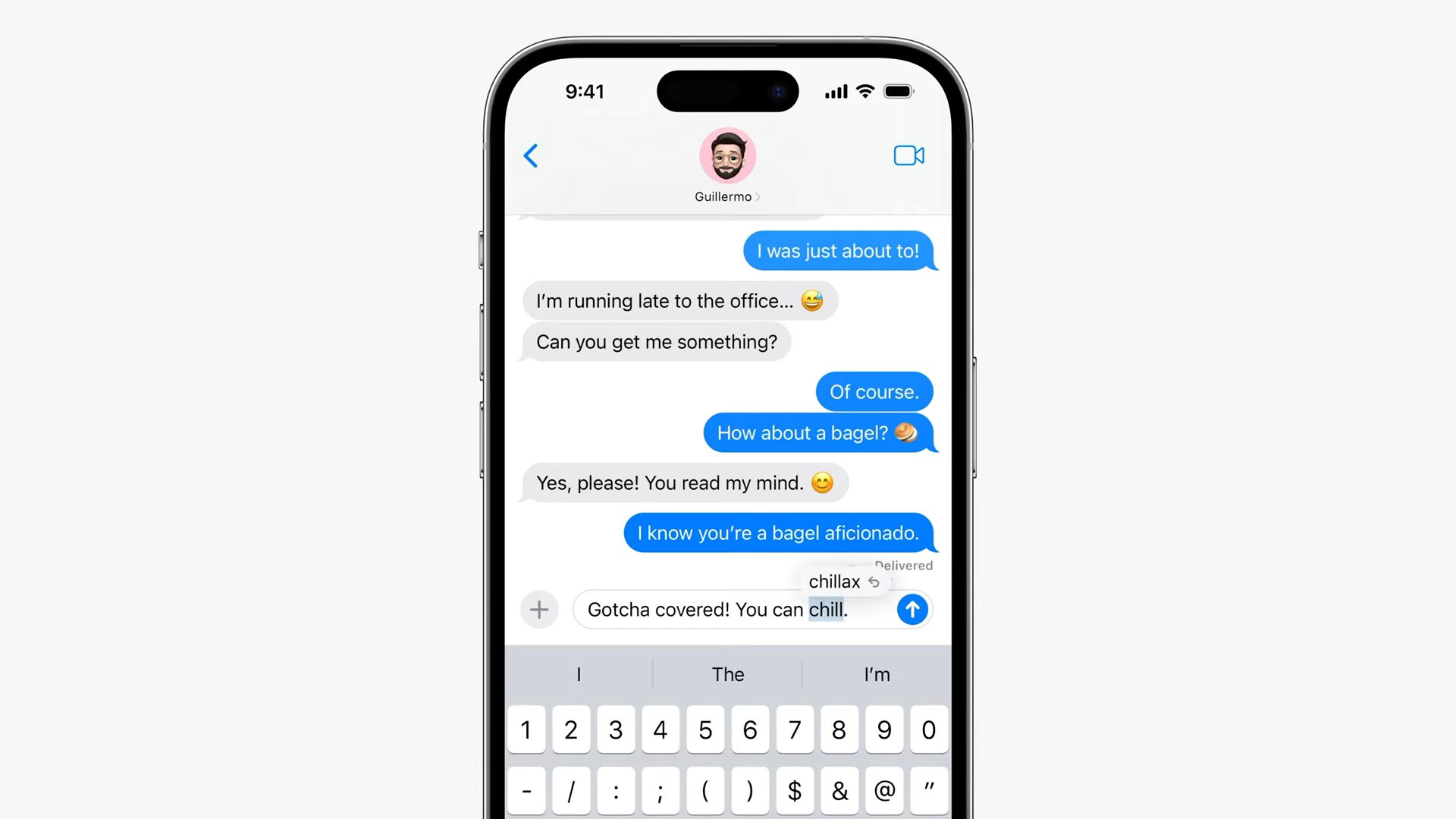
While Google and Microsoft are busy putting AI into their search products, Apple is putting AI into the iOS 17 keyboard. Autocorrect on iOS has received a significant update with a transformer language model that excels in word prediction. iOS 17 users can expect to receive inline predictive text recommendations as they type, so they can complete sentences by tapping away on the space bar.
Similarly, Dictation is leveraging a new speech recognition model that makes it more accurate.
New Journal app
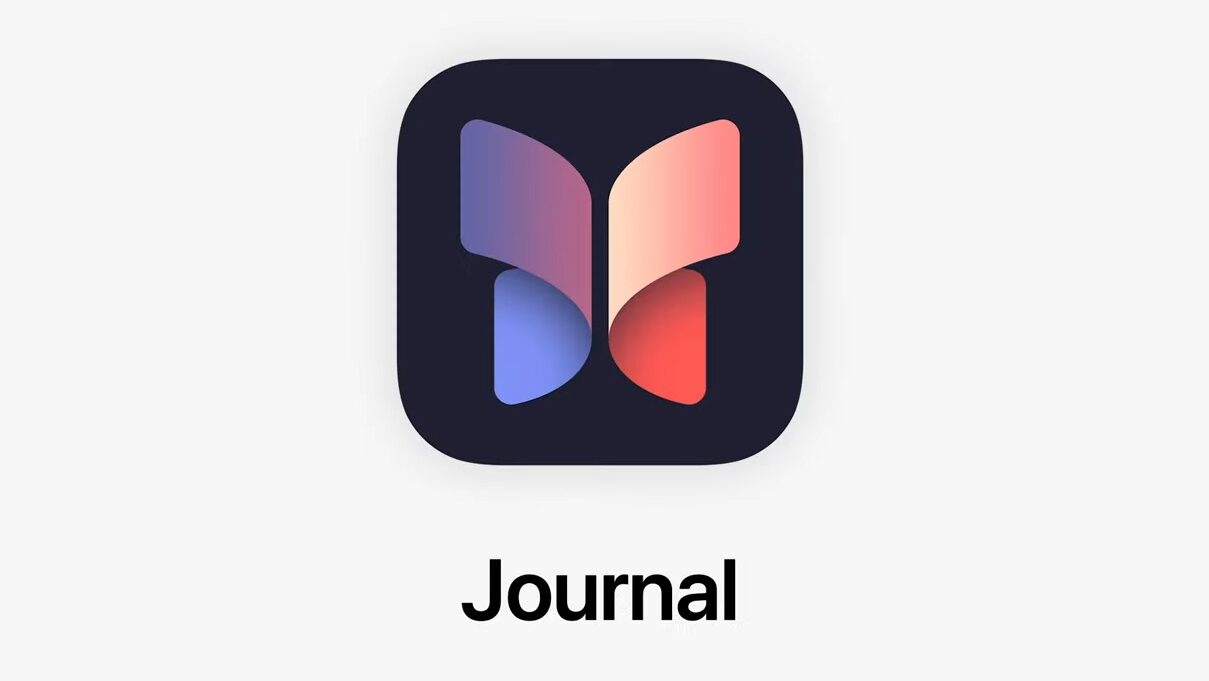
As the name implies, Journal lets you take stock of your life by jotting down details, which some people may find useful for their mental health.
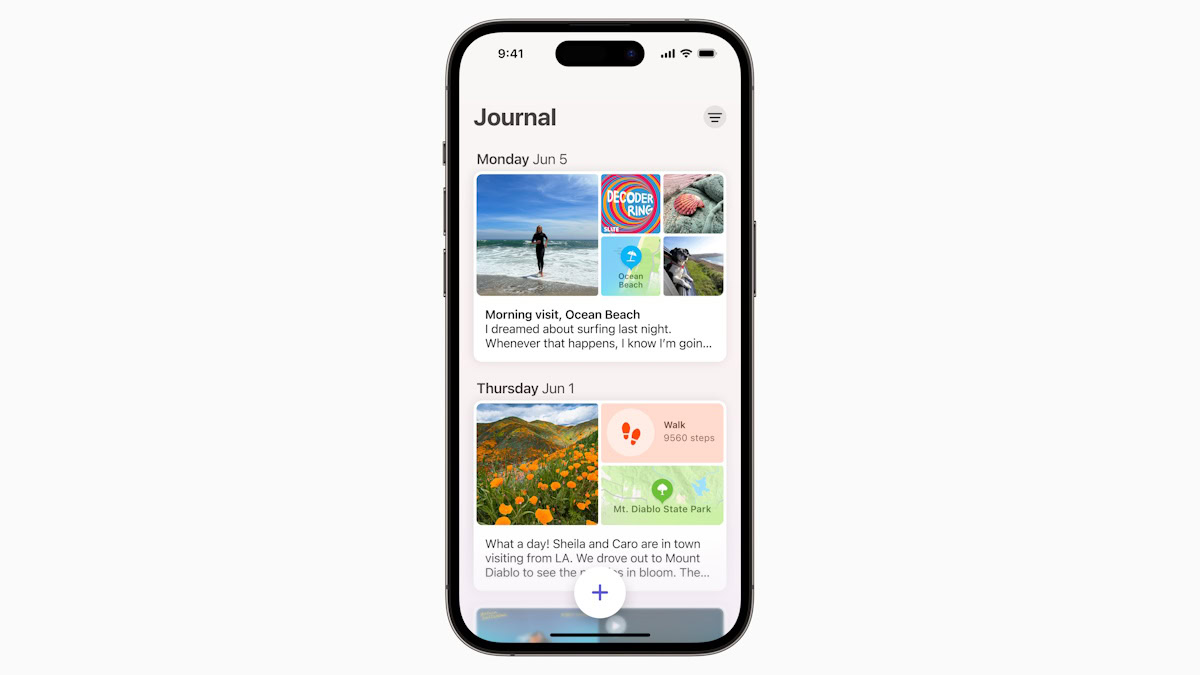
It wouldn’t be an Apple app if it were just a basic journaling app. Instead, Journal uses on-device machine learning to offer personalized suggestions to help inspire journal entries. Suggestions are curated from recent activity, including photos, people, places, workouts, and more.
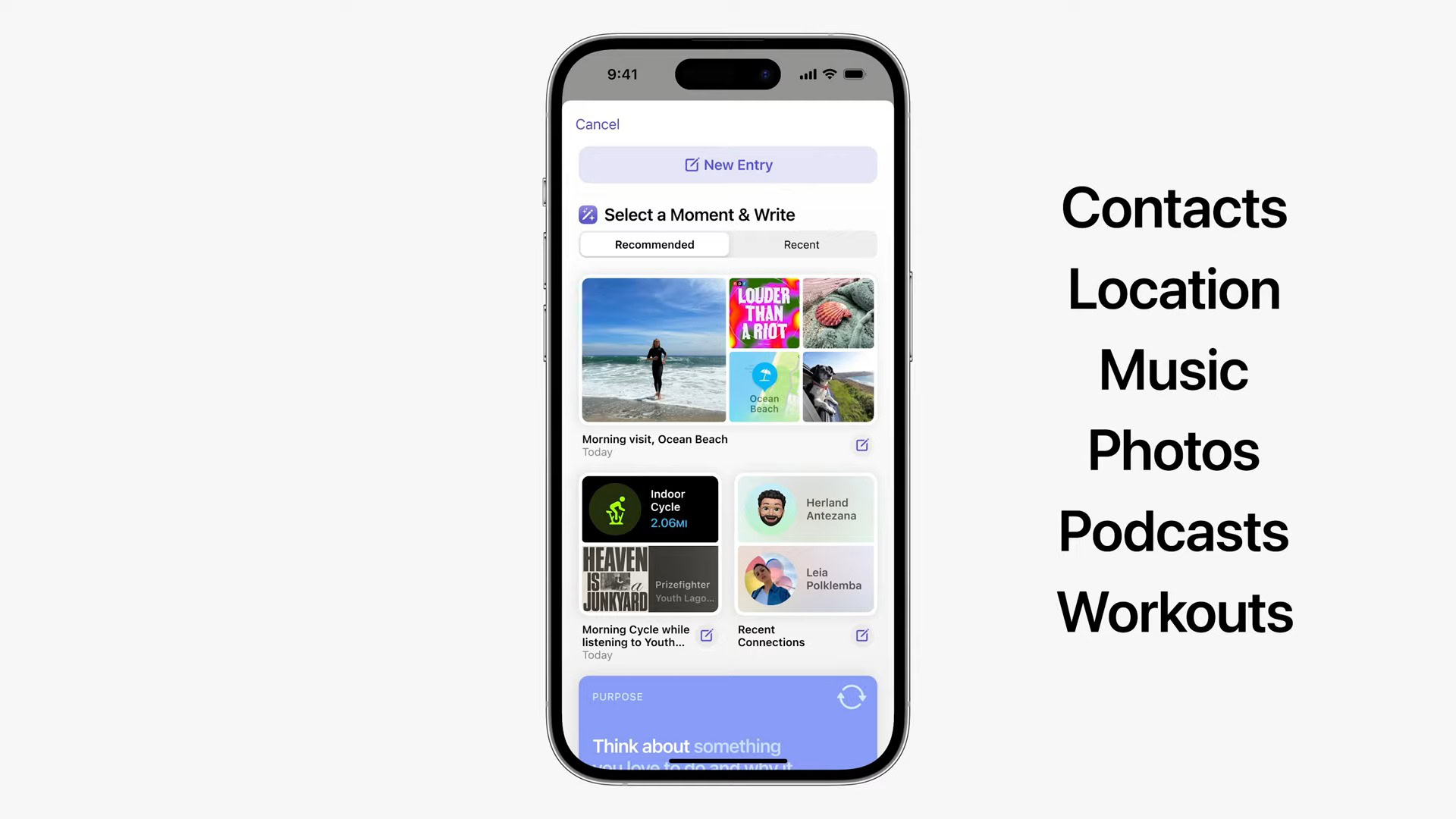
Scheduled notifications are on offer to help build a journaling habit, and you can bookmark your favorite entries. Since journaling can be a rather personal activity, you can lock the app to prevent someone from casually accessing it when they have your iPhone in hand.
Safari becomes more private
Safari, the web browser on iOS, is becoming more private with iOS 17. Private Browsing sessions will lock when the phone is not in use, letting users keep private tabs open even when they aren’t around their phone. Safari will also prevent websites from tracking or identifying a user’s device through advanced tracking and fingerprinting protections.
Sensitive Content Warning protects you from unwanted nudes
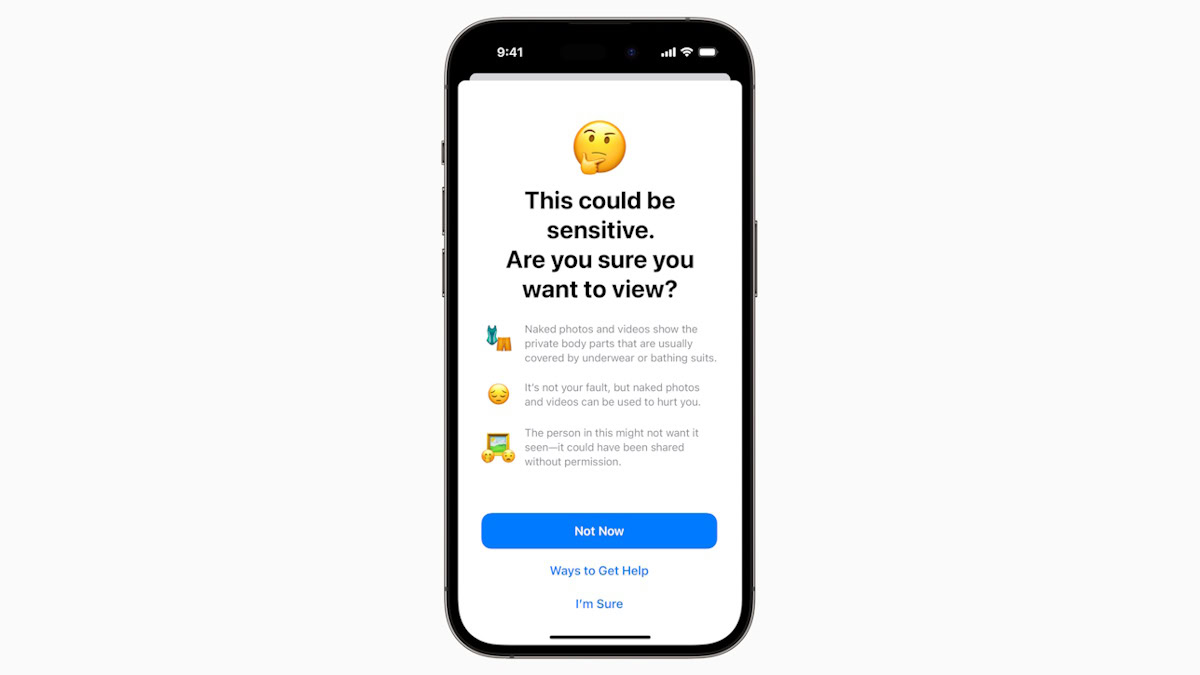
Sensitive Content Warning is a new iOS 17 feature that helps adult users avoid seeing unwanted nude images and videos. So if someone sends you an unsolicited photo or video, the media itself remains blurred while the phone warns you about the explicit nature of the incoming photo or video.
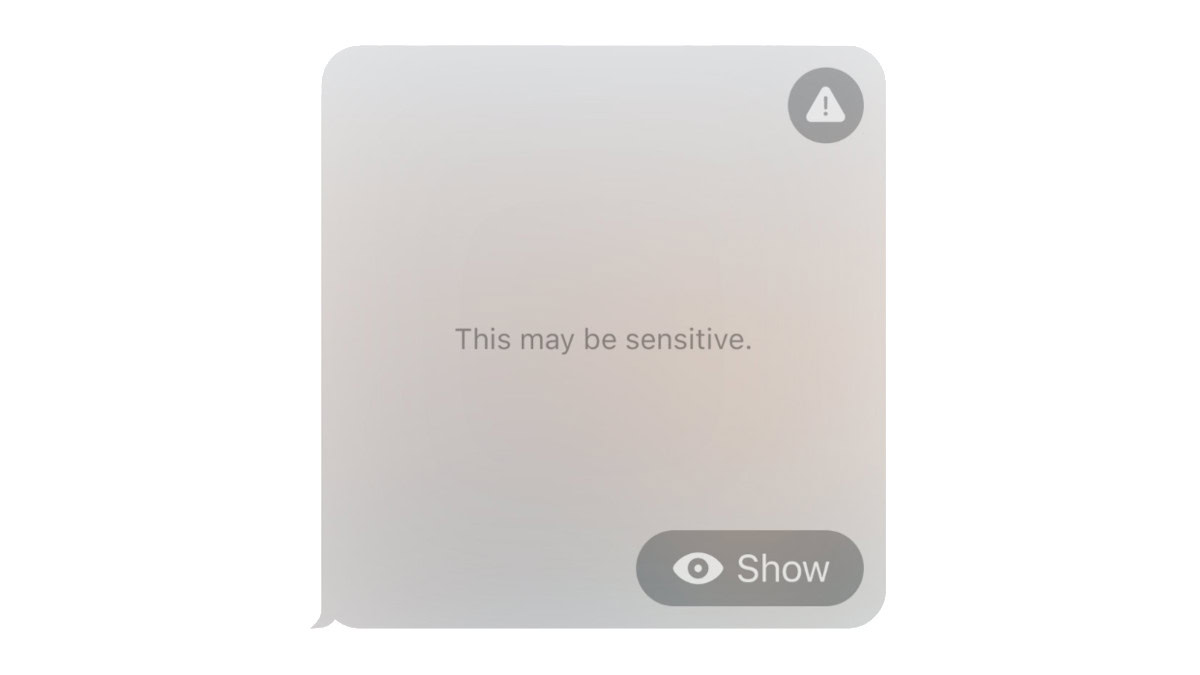
Apple says that all image and video processing for Sensitive Content Warning occurs on-device.
Share passwords with people you trust
iOS 17 is making it easier to share passwords with trusted contacts. Sharing is done through the iCloud Keychain. Everyone in the group will be able to add and edit passwords (like for Wi-Fi and shared shopping accounts), making it easier to live a life with a shared community.
Health app offers new mental health features
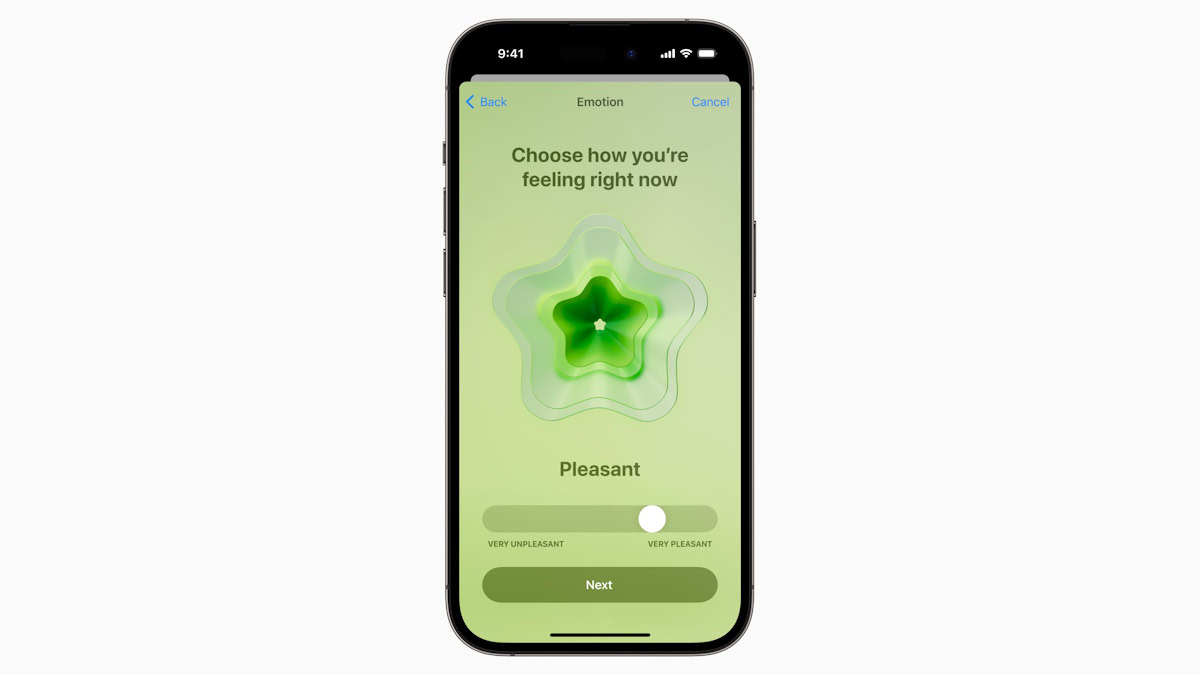
iPhone users can now log their daily moods and momentary emotions in the Health app. This won’t be useful to most people, but it can help figure out what might be contributing to your state of mind, and you’ll be able to access the depression and anxiety assessments that are often used in clinics, as well as other resources.
Screen Distance advises kids to maintain distance from the screen
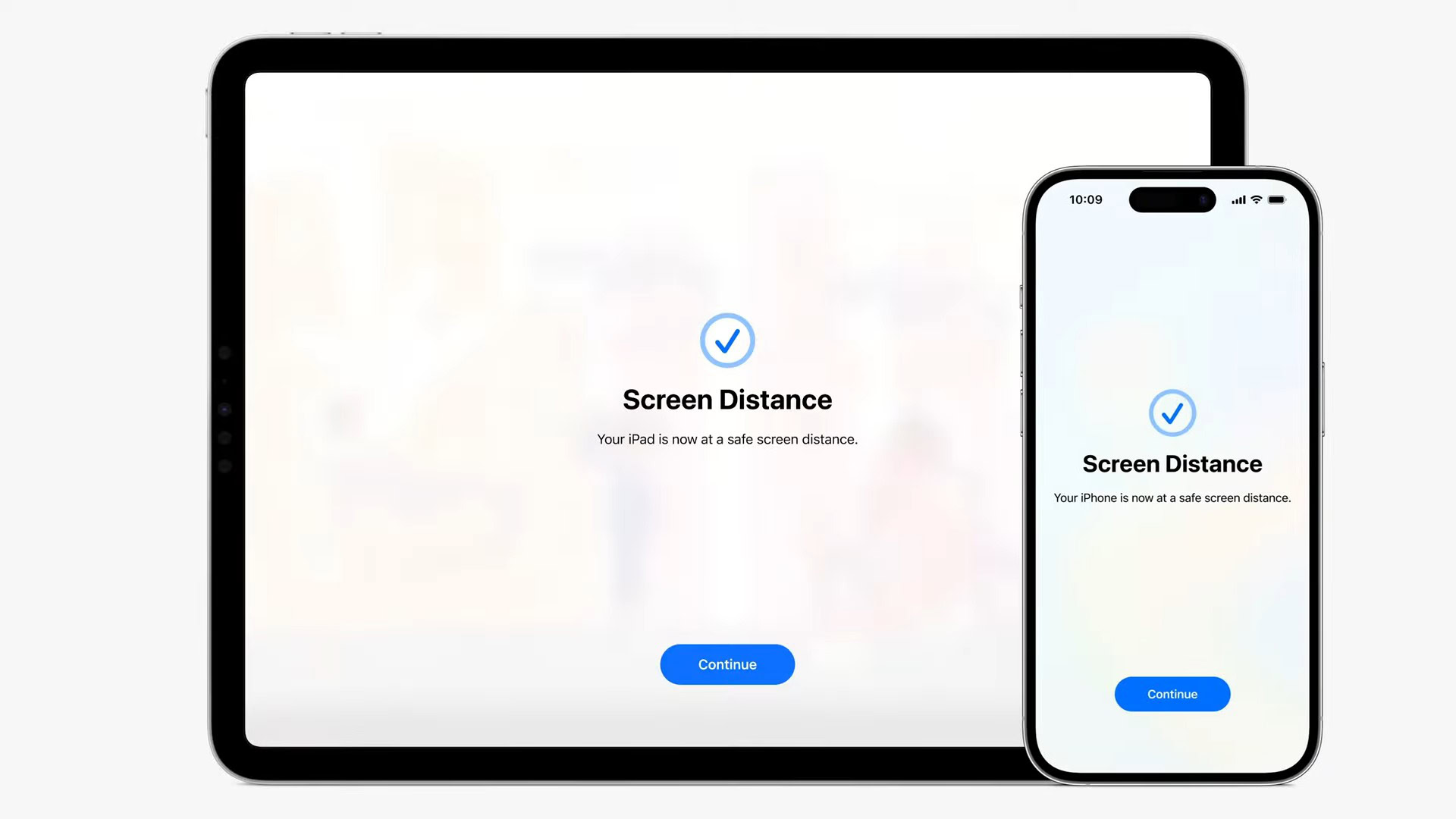
A new Screen Time feature called Screen Distance will advise kids to keep their eyes unglued. The clever bit is that it relies on an iPhone’s TrueDepth camera to determine if someone is holding their phone closer than 12 inches from their face for an extended period.
Maps gets offline support and other features
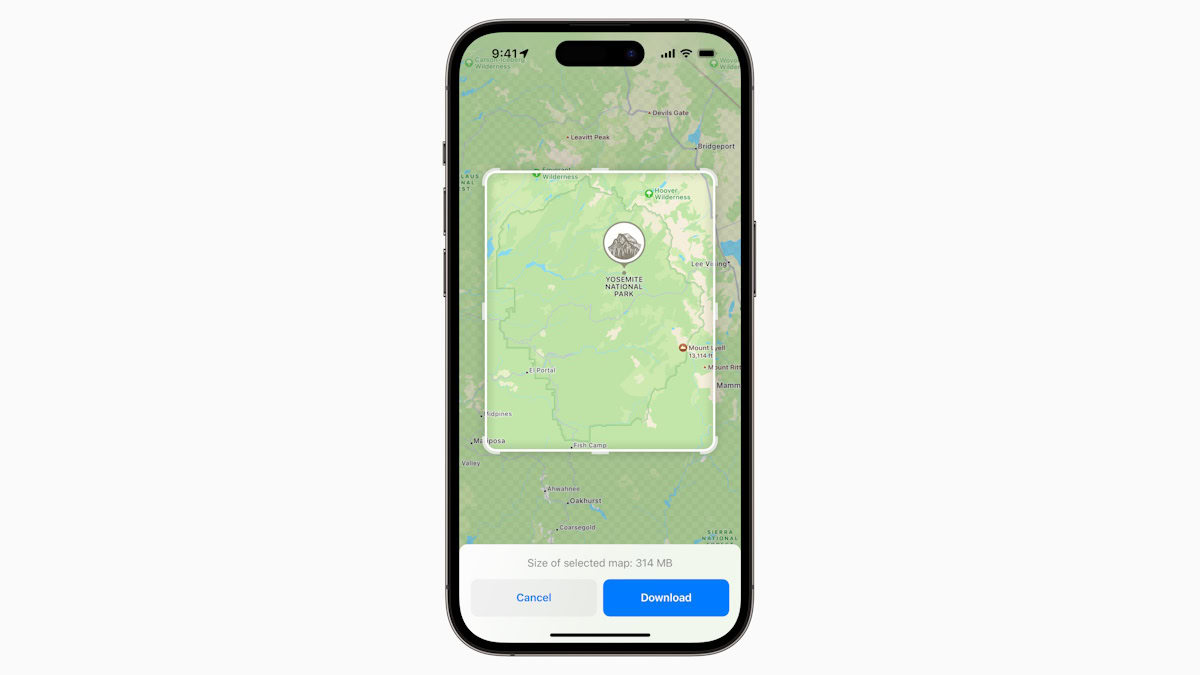
Apple Maps on iOS 17 is finally getting offline caching, letting travelers download a specific map to their iPhone before they head out.
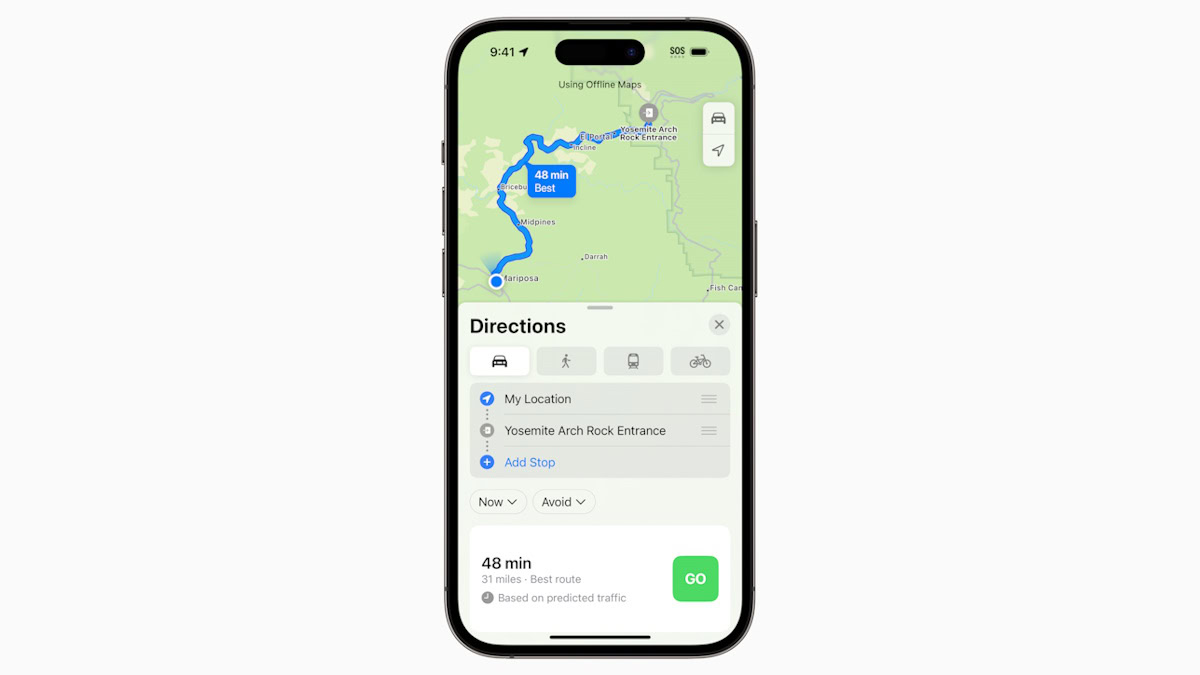
They can then access turn-by-turn navigation, see their estimated arrival time, find places, and more without relying on cellular or Wi-Fi.
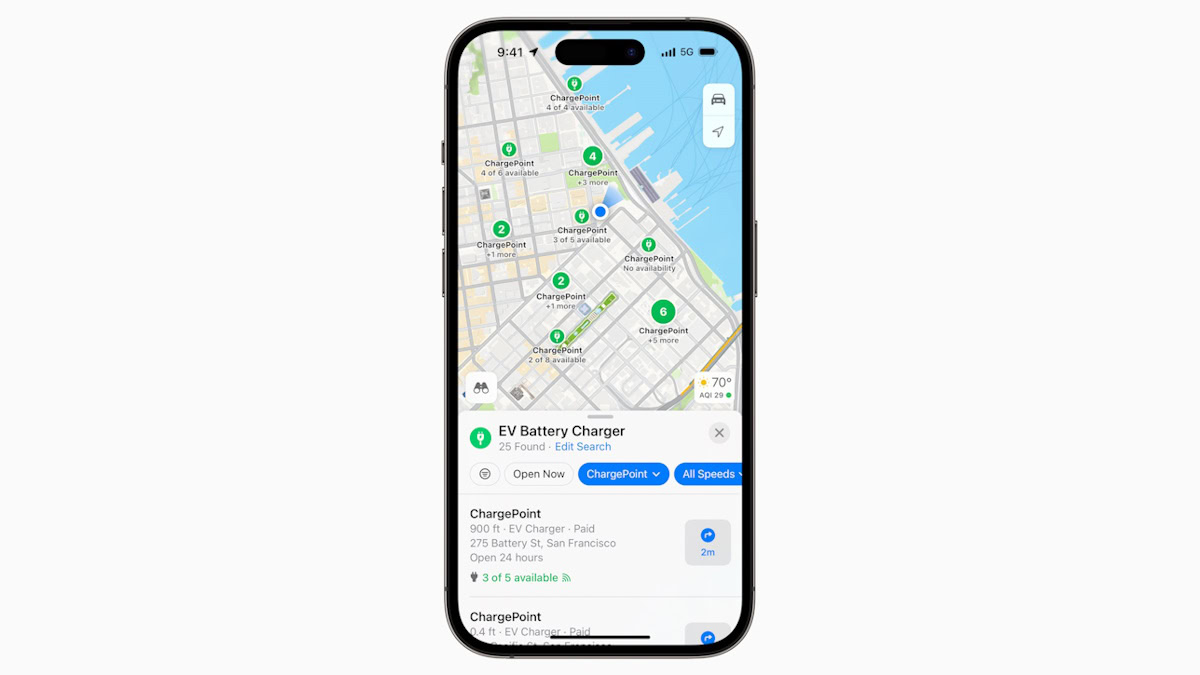
Further, Apple is making discovering park trails across the US easier, and adding real-time availability information for EV charging stations.
Apple Cash gets recurring payments and auto top-ups
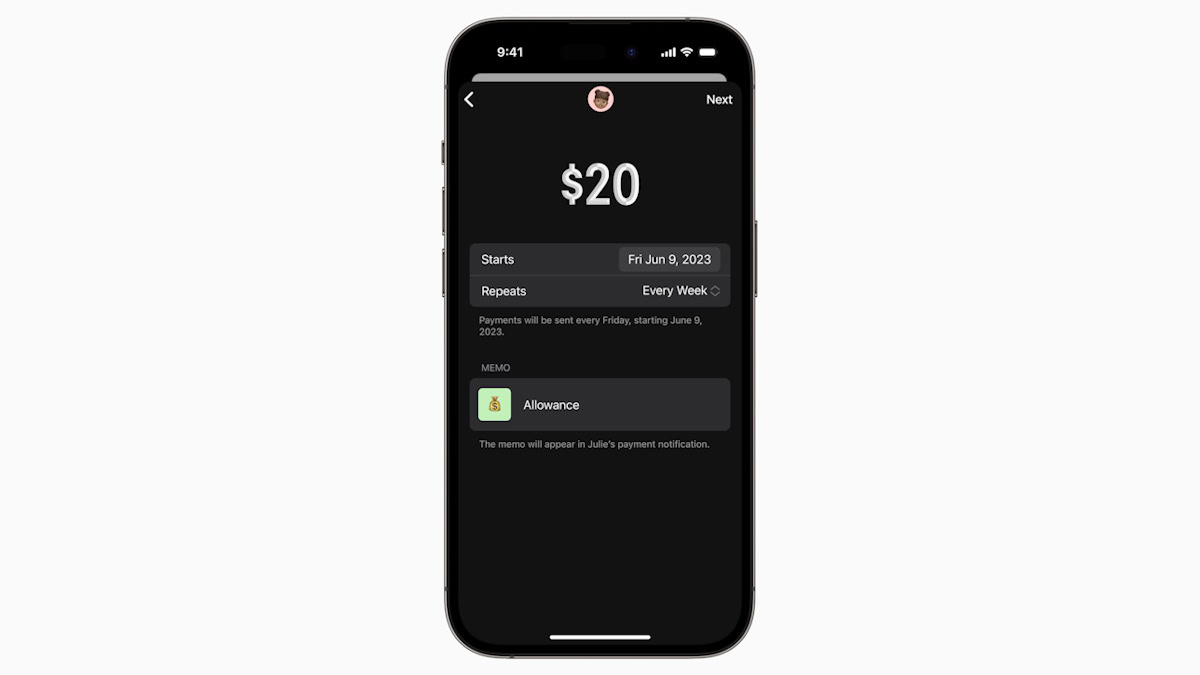
Apple Cash on iOS 17 now allows users to set up weekly, biweekly, or monthly Apple Cash payments. This will make it easier for parents to pay allowances to kids, and friends to pay rent to each other.
Users will also be able choose to automatically top up their Apple Cash balance when it runs low.
Apple Wallet can now present your ID to businesses
With iOS 17, businesses can accept IDs in Apple Wallet without needing additional hardware.
Users have to hold their iPhone or Apple Watch near the business’s iPhone. They will then see a prompt highlighting the requested information and whether the receiver will be storing it. Users can authenticate and consent using Face ID or Touch ID.
This will make it easier for businesses to verify a person’s identity and age quickly.
Apple Music gets Collaborative Playlists for shared music listening
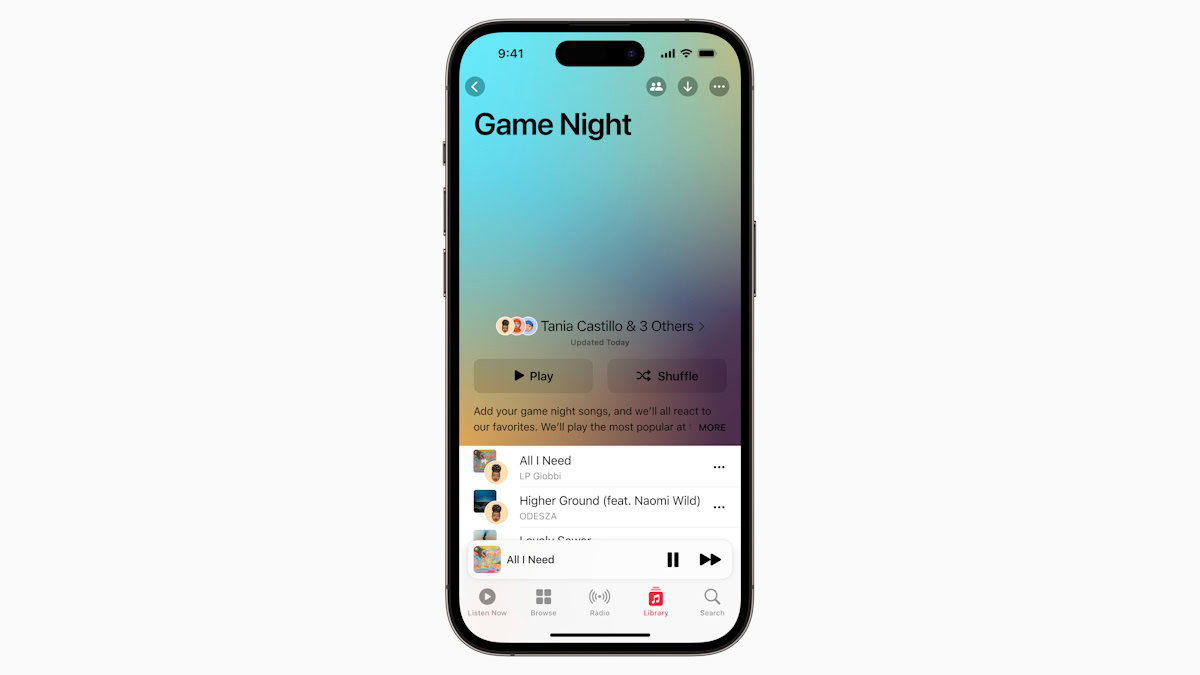
Apple Music is introducing Collaborative Playlists, letting users in proximity use SharePlay to contribute what is playing on a device, like a car or a group speaker. Listeners can control the music from their own devices even if they don’t have an Apple Music subscription themselves.
AirPlay now available in hotels
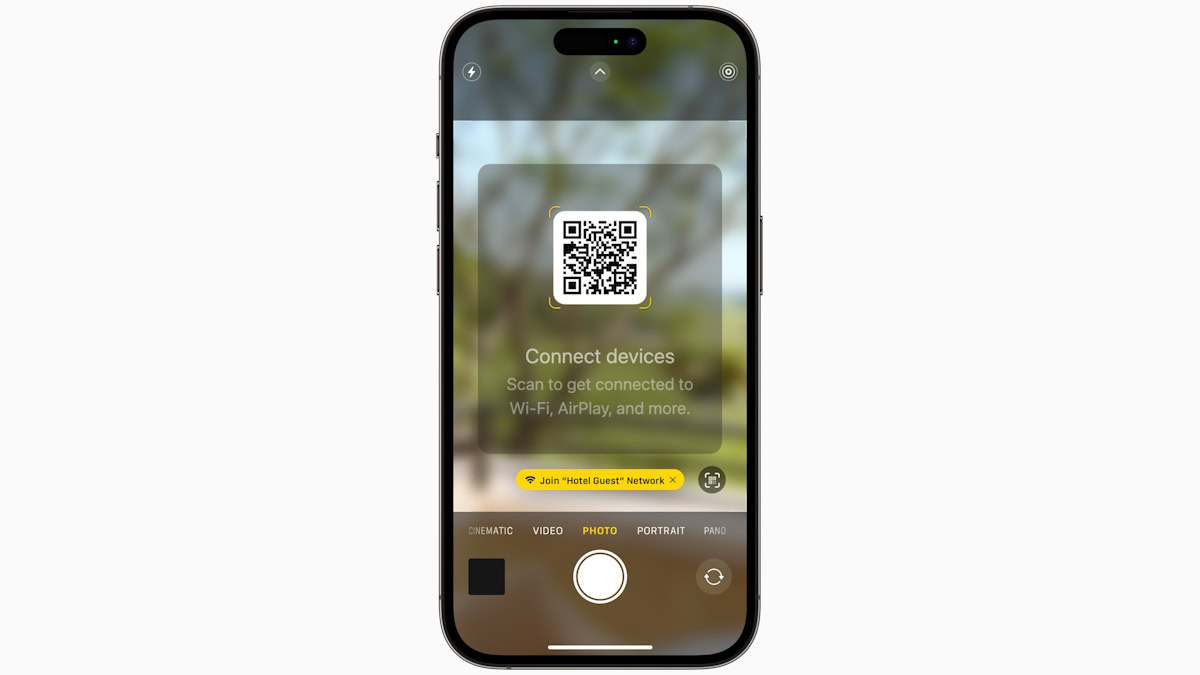
Apple is working with hotels to open up AirPlay access there. You’ll be able connect to hotel Wi-Fi and start sharing your phone content to your room’s TV through SharePlay after a simple QR code scan. This feature will only be available in select hotels at first, starting with brands from IHG Hotels and Resorts before the end of 2023.
Smaller changes in iOS 17 and its apps
There are many more minor changes in iOS 17 and included apps. Some of these smaller iOS 17 features are listed below:
- The Home app allows users to view up to 30 days of activity history. It’s a small but helpful change when setting up your smart home or troubleshooting it.
- The Reminders app now features a grocery list that automatically groups added items into categories that make shopping easier. Users can change how the items are grouped, and the list remembers their preferences.
- Visual Look Up can now be activated in paused video frames, making reverse image searching possible from within videos.
- Thanks to on-device machine learning, the People album will now recognize more photos of people and pets in the Photos app.
- Accessibility improvements:
- Assistive Access is a customizable interface that helps users with cognitive disabilities use an iPhone more easily.
- Live Speech allows non-speaking users to type and have their words spoken in person or on phone and FaceTime calls.
- Personal Voice allows users at risk of speech loss to create a voice that sounds like theirs.
- Point and Speak helps users who are blind or have low vision read text on physical objects by pointing the camera of their iPhone on it.
iOS 17 compatibility
Just like iPadOS, Apple’s iOS has some of the best update support available. In addition to shipping with the iPhone 15, you can also get iOS 17 for the following iPhone models:
- iPhone 14 series
- iPhone 13 series
- iPhone 12 series
- iPhone 11 series
- iPhone XS/Max
- iPhone XR
- iPhone SE 2nd gen or newer
Just keep in mind there may be a few features that don’t work on older iPhone models even if they get the update.